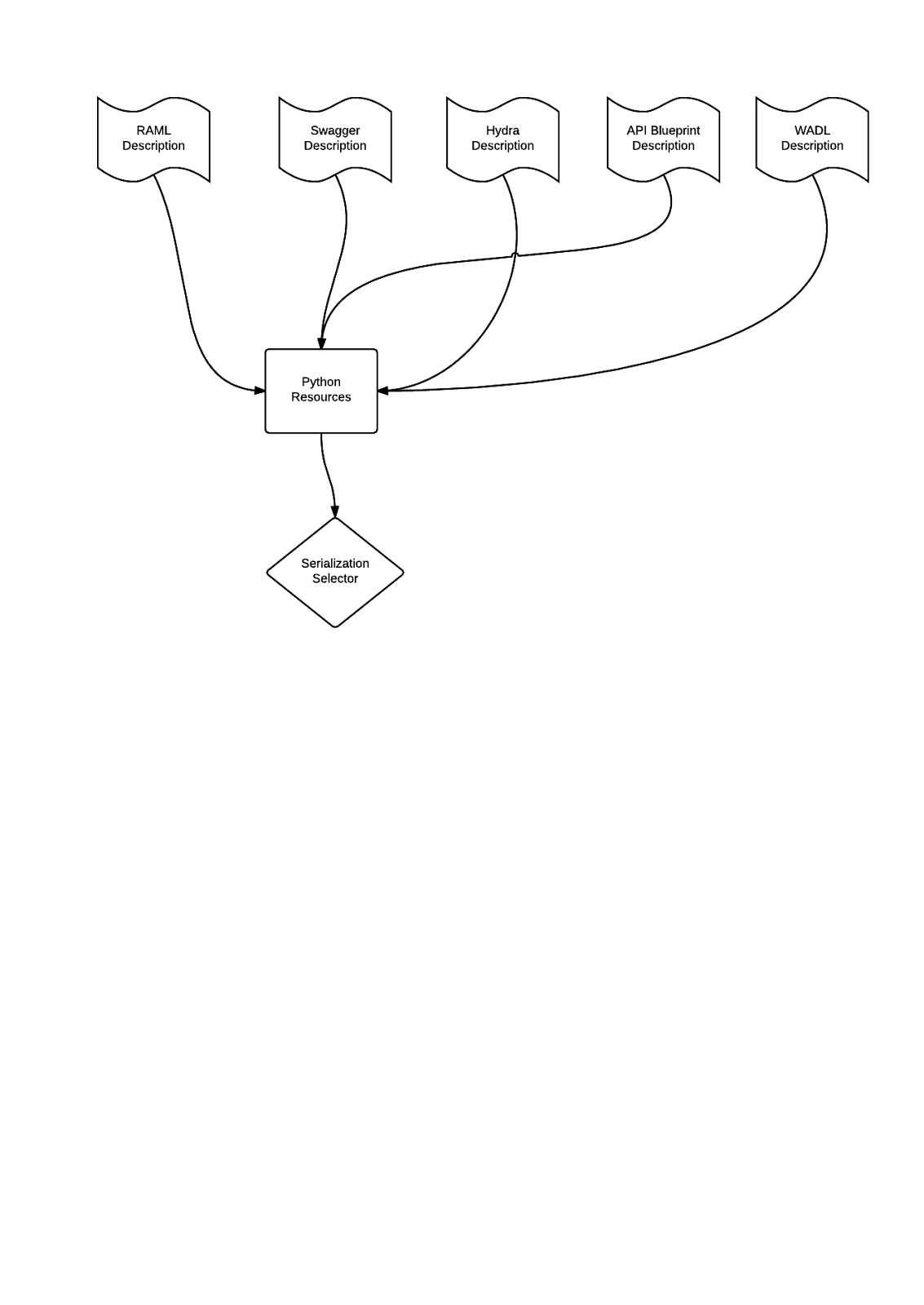Why would anyone need to evangelism about Semantic Web?
This (as the title may reveal) is about semantic web technologies and their usage, as well as the discussion around it.
The world has made such comet-like advance lately on science, we almost hope, that before we die we learn something about our infancy. Recent discoveries on cognitive science try to explore the way humans deal with information.
The key questions are (borrowed from a nice online reference ):
 What is the best explanation for imaginative experiences of the worlds created by artworks, especially those of complex narratives in films or novels? Studies of autistic children suggest that they lack certain powers to imagine the viewpoint of others. Sometimes this is put by saying that they lack a theory of the mind; but what does this mean? Some say that they lack a certain knowledge that ("theory theory"), while others argue rather that imagination involves some kind of basic, probably hard-wired, knowledge how-- an ability to simulate the experiences of others ("simulation theory"). What is the best explanation of various kinds of images, such as mental images, visual images, etc.? How are perceptual and symbolic imagination distinct; how are they related?
What is the best explanation for imaginative experiences of the worlds created by artworks, especially those of complex narratives in films or novels? Studies of autistic children suggest that they lack certain powers to imagine the viewpoint of others. Sometimes this is put by saying that they lack a theory of the mind; but what does this mean? Some say that they lack a certain knowledge that ("theory theory"), while others argue rather that imagination involves some kind of basic, probably hard-wired, knowledge how-- an ability to simulate the experiences of others ("simulation theory"). What is the best explanation of various kinds of images, such as mental images, visual images, etc.? How are perceptual and symbolic imagination distinct; how are they related?

Having identified the variety of open issues on cognitive science issues, let's move on the web. Since the current web aims to much more than sir Tim originally hoped for, we need to identify and talk about it.
Before we move forward, while I was writing an introduction about SW I found an already existing intro which I state below.
The world has made such comet-like advance lately on science, we almost hope, that before we die we learn something about our infancy. Recent discoveries on cognitive science try to explore the way humans deal with information.
The key questions are (borrowed from a nice online reference ):
Perception
How do we account for selective attention to aspects of artworks? How do the perceptions of experienced viewers or listeners differ from those of less experienced ones? How does aesthetic perception build upon, or how is it related to, natural human perceptual abilities?Imagination
Emotions
Do we experience authentic emotions or "pretend" (simulated) emotions in response to artworks? What is an "authentic emotion," anyway? Can we experience genuine emotions (fear, horror, arousal, etc.) in response to illusions of, say, films? How are the emotions we feel in response to artworks "ecologically" based, i.e., how are they related to our environmental adaptation and species survival? What can neuroscience tell us about complex aesthetic emotions? What does cognitive science offer as an account of emotional expression IN works of art, such as impressionist music, German expressionist cinema, abstract expressionist painting, etc.?Representation
Does representation occur through conventions or is it somehow more natural, a matter of the operation of certain psychological laws (perhaps even quite complex ones)? What is meant by "representation" in the context of discussions of mental processors, such as musical or visual processors? Here, representation seems to involve a specification or "cognitive mapping," not symbolization, of a world, leading some to deny that so-called "internal representations" have any role in cognitive science.Interpretation
What cognitive, perceptual, and other skills are used in interpreting works of art? How do basic perceptual skills enter in? Can cognitive science offer persuasive accounts of the way we learn to interpret difficult works such as avant-garde cinema, twelve-tone music, etc? What is the role of schemata that aid us in our perceptions, and how would we account for the development of such schemata (like, say, the master chess-player's schemata employed in looking at a chess board)?Language
Is all thought inherently linguistic or propositional in nature? Or does a modularity thesis of mind hold -- are there forms of cognition unique to, say, music and visual art? Is language closely related or not to nonlingustic communication (stop and go lights, gestures, etc.)? Is it helpful and productive to treat music, painting, film, etc. as having languages of their own? How would such languages differ from ordinary languages? What is the relation of natural language to literary language (metaphor, lyrical poetic language, etc.)? One account of linguistics that has been extremely influential for art theorizing is that of Saussure; what would be the implications of replacing his theory with, say, that of Chomsky?Narration
What is the best way to understand narration as it operates in different art forms such as the novel and cinema? How might narrative be involved in another temporal art form such as music? Are narratives part of human conscious experience generally? What would account for such narratives without an internal homunculus to serve as their narrator? And what is the relation then between "narrative truth" and "historical truth"? Can certain pathological states be understood as disrupted or abnormal narratives; how might such narratives play a role in the creation of innovative or avant-garde art? What is the relation between narration and explanation? What makes a narrative "true"?Knowledge and the Ineffable
Do we have forms of experience in the arts that are ineffable? That is, do we have ineffable knowledge of, say, certain kinds of nuances in music that we cannot express in words? What would make such awareness count as real "knowledge"? What implications are there for current theories of consciousness like Dennett's?Having identified the variety of open issues on cognitive science issues, let's move on the web. Since the current web aims to much more than sir Tim originally hoped for, we need to identify and talk about it.
Before we move forward, while I was writing an introduction about SW I found an already existing intro which I state below.
Semantic Web
The Semantic Web is a mesh of information linked up in such a way as to be easily processable by machines, on a global scale. You can think of it as being an efficient way of representing data on the World Wide Web, or as a globally linked database.
The Semantic Web was thought up by Tim Berners-Lee, inventor of the WWW, URIs, HTTP, and HTML. There is a dedicated team of people at the World Wide Web consortium (W3C) working to improve, extend and standardize the system, and many languages, publications, tools and so on have already been developed. However, Semantic Web technologies are still very much in their infancies, and although the future of the project in general appears to be bright, there seems to be little consensus about the likely direction and characteristics of the early Semantic Web.
What's the rationale for such a system? Data that is geneally hidden away in HTML files is often useful in some contexts, but not in others. The problem with the majority of data on the Web that is in this form at the moment is that it is difficult to use on a large scale, because there is no global system for publishing data in such a way as it can be easily processed by anyone. For example, just think of information about local sports events, weather information, plane times, Major League Baseball statistics, and television guides... all of this information is presented by numerous sites, but all in HTML. The problem with that is that, is some contexts, it is difficult to use this data in the ways that one might want to do so.
So the Semantic Web can be seen as a huge engineering solution... but it is more than that. We will find that as it becomes easier to publish data in a repurposable form, so more people will want to pubish data, and there will be a knock-on or domino effect. We may find that a large number of Semantic Web applications can be used for a variety of different tasks, increasing the modularity of applications on the Web. But enough subjective reasoning... onto how this will be accomplished.
The Semantic Web is generally built on syntaxes which use URIs to represent data, usually in triples based structures: i.e. many triples of URI data that can be held in databases, or interchanged on the world Wide Web using a set of particular syntaxes developed especially for the task. These syntaxes are called "Resource Description Framework" syntaxes.
This is in general a huge area that I would try to explore with all the latest advancements. Related areas that will be of interest in this blog are going to be the Internet of Things, web services, APIs and anything that you find similar and would like to hear about.
I would also like to host interesting invited articles!
See you around guys
This is in general a huge area that I would try to explore with all the latest advancements. Related areas that will be of interest in this blog are going to be the Internet of Things, web services, APIs and anything that you find similar and would like to hear about.
I would also like to host interesting invited articles!
See you around guys


Σχόλια
Δημοσίευση σχολίου